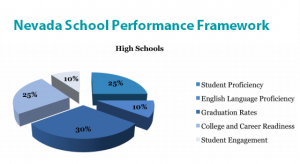The Every Student Succeeds Act (ESSA), reauthorized in 2015 under President Obama, affords states great opportunity to promote career readiness by updating state accountability systems, providing supports for teachers and leaders, and ensuring students can access a “well-rounded education,” including opportunities such as Career Technical Education (CTE). With the first submission window for ESSA plans now officially open, several states have stepped up to the plate, signaling a new era of career readiness.
Amid Transitions in Washington, States Move Forward as Planned
This week’s submission window comes after recent changes to the ESSA plan submission process threatened to derail the timeline. After Congress exercised its rarely-used Congressional Review Act authority earlier this year to revoke certain ESSA regulations, Education Secretary Betsy DeVos urged states to stay the course and continue their implementation efforts as planned. Earlier in March, Sec. DeVos released an updated template reorganizing the structure of the state plan and eliminating a few requirements from the Obama administration’s version, providing additional flexibility to states. While this reduced the turnaround time for states to prepare their final plans, states are permitted to submit plans as late as May 3 to provide the governor 30 days to review the final version, as required by statute.
States took these changes in stride, though some are reconsidering their approach to public data reporting. The accountability regulations repealed by Congress earlier this year encouraged the use of a “summative rating” to differentiate school performance. Now that the rule no longer applies, many states are rolling back A-F school report cards in favor of multi-measure dashboards. These changes are largely a response to criticism from local superintendents and other stakeholders who claim that summative reporting is overly simplistic and fails to provide a nuanced picture of school quality.
At Least Ten of First Eighteen States to Count Career Readiness in their Accountability Systems
 Eighteen states have signaled they will submit ESSA plans during the initial review window, which opened on April 3. Of those, nine have already submitted plans to the U.S. Department of Education. While Montana and Ohio originally opted to submit by the April 3 deadline, they have since delayed their plans to allow more time for stakeholder engagement. They, along with the remaining states, will submit in September.
Eighteen states have signaled they will submit ESSA plans during the initial review window, which opened on April 3. Of those, nine have already submitted plans to the U.S. Department of Education. While Montana and Ohio originally opted to submit by the April 3 deadline, they have since delayed their plans to allow more time for stakeholder engagement. They, along with the remaining states, will submit in September.
A review of draft public-comment plans reveals some promising strategies to strengthen CTE and career preparation opportunities. Of the 18 states submitting plans this week, at least ten plan to use some form of career readiness indicator in their accountability systems. These include:
- Connecticut, which plans to adopt three measures of college and career readiness, including preparation for coursework, preparation for exams and postsecondary entry. These measures examine preparation for two-and four-year colleges as well as participation and success in CTE courses and workforce experiences.
- Michigan, where policymakers exceeded federal requirements and identified a total of seven different indicators (ESSA requires five). Under the state’s plan, the accountability system will measure “Advanced Coursework,” to include successful completion of dual enrollment, middle early college, CTE, Advanced Placement or International Baccalaureate coursework. The Advanced Coursework indicator, along with other non-academic indicators, will together be weighted at 14 percent of the total score.
- Nevada, which aims to adopt a “College and Career Readiness” indicator measuring ACT assessment scores, completion of college credit bearing coursework (AP, IB and dual enrollment) and industry-recognized credential attainment. That indicator will make up 25 percent of the state’s overall accountability score.
Other states such as Colorado plan to adopt additional indicators a later date once better systems have been developed to reliably collect and report data. Colorado plans to convene its accountability workgroup again this spring and will explore possible measures of career readiness, including completion of advanced coursework, students graduating with college credit or an industry credential, and post-graduation employment.
Additional career readiness strategies are present throughout state draft plans. In North Dakota, state policymakers singled out ESSA’s “well-rounded education” requirements to promote CTE, competency-based learning, personalized learning and Science, Technology, Engineering, Art and Math (STEAM) programs. The state plans to use ESSA’s Student Support and Academic Achievement Grants (authorized under Title IV Part A) to strengthen well-rounded education opportunities and prepare students for postsecondary success.
And in Maine, the Department of Education plans to continue its ongoing Intersections Workshops, which bring together academic and CTE teachers to identify intersections across different content standards. This work was originally started after the state adopted a competency-based education system in 2012.
The first round of state ESSA plans indicates enthusiasm and willingness to leverage federal policy to support career readiness. And even states that do not currently have the technical capacity to do so are taking steps to adopt such measures. With months remaining until the second submission deadline in September, we encourage states to examine ESSA’s increased flexibility and seize the opportunity to strengthen career readiness systems statewide.
Austin Estes, Policy Associate
Tags: accountability, Betsy DeVos, Connecticut, ESSA, Every Student Succeeds Act, Maine, Michigan, Nevada, North Dakota, Well-rounded Education

